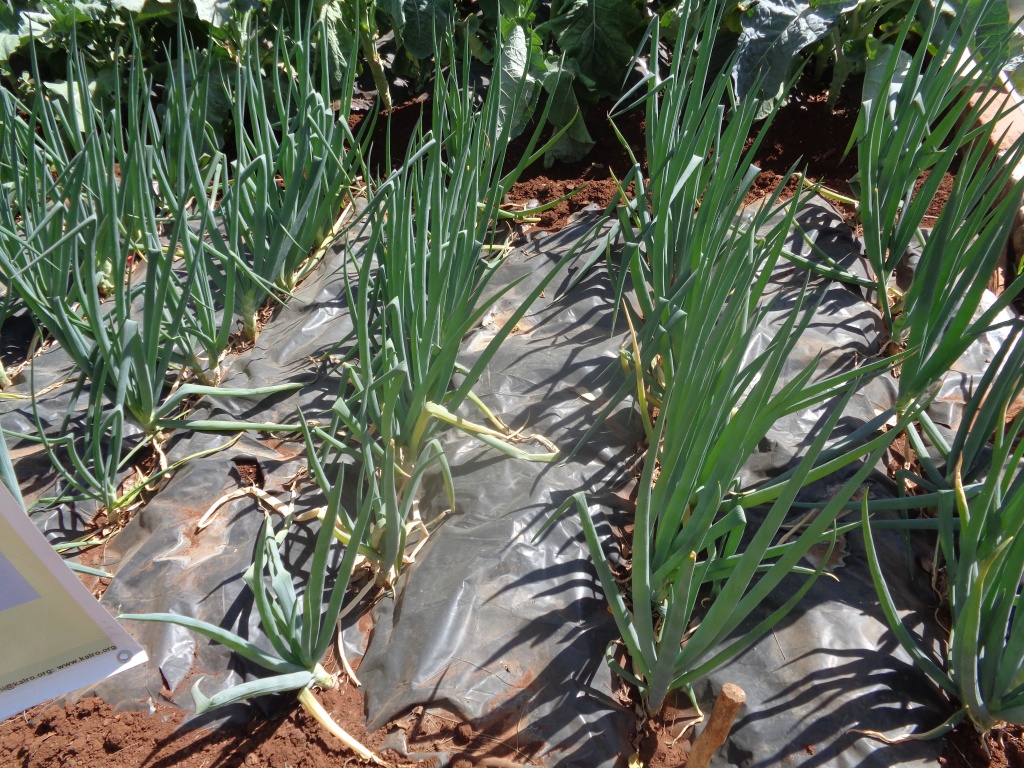Farmers in drought stricken areas or with little rainfall are advised to adopt plastic mulching technology which is the practice of covering soil with polythene to make more favorable conditions for plant growth, development and efficient crop production.
Small-holder farmers can cut costs of irrigation and mechanization by adopting plastic mulching technology.
Ministry of Agriculture Extension officer Samuel Mburu says just like traditional organic mulch, which controls weeds and retained moisture content in soils, this method boosts harvests while reducing labor required in production process.
Leek onions planted on plastic mulch at the 2017 Nairobi International Trade Fair 2017. PIC/JAPHET RUTO, FARMBIZ AFRICA
READ ALSO:Mulching helps farmer avoid drought effects
With depletion of vegetation, agro-companies have developed synthetic mulching materials from plastics for small and large-scale farmers with open fields or greenhouses.
Although polythene mulch complements drip irrigation especially on large-scale, Mburu says, it is equally appropriate for small-scale farmers like those with kitchen gardens.
READ ALSO: Mulching beats new herbicide restrictions on export products
“We have no more grass, weeds and other organic materials to cover soil to prevent water loss. Farmers want to bring more land under irrigation, but losing the water to evaporation will lead to high production costs. An investor would like to use little to earn more. Synthetic mulch comes in handy,” he says.
READ ALSO: It is one irrigation in two months with polythene mulching
This practice is common with short season crops such as tomatoes, cabbage, kale, sunflowers, maize, and cucumbers, among others.
With climate change, the extension officer says, farmers in high rainfall areas are likely to suffer losses when it fails to fall due to altered patterns.
Types of plastic mulching technology
- Polythene mulch
- Made of polypropylene polymers or polyethylene polymers
- It is bio-gradable but breaks down slowly
- The polythene mulch can be removed manually at the end of the growing season
- It can be recycled
- Bio-gradable mulch
- It is made from plant starches and sugars or polyester fibers
- It breaks down fast hence reducing soil pollution
- It cannot be re-used
These types of mulching increases water use efficiency by reducing evaporation and improving moisture distribution. It also modifies soil temperature encouraging faster germination and growth of crops. Plastic mulching increases nitrogen efficiency and prevents weed growth by 100%. It can increase yields by 23-90%.

















Comments powered by CComment